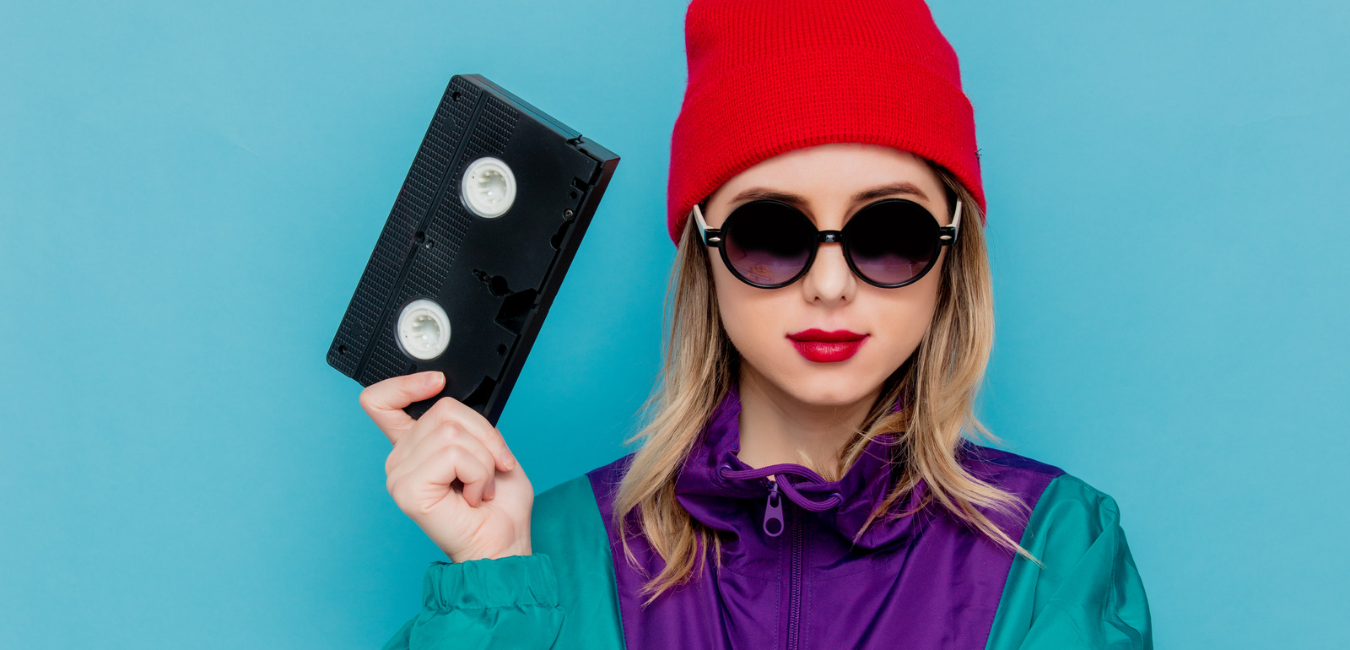I’m a creature of habit. I wear only a few outfits on rotation (although you’d never know it from my jam-packed closet) and purchase roughly the same groceries week after week. However, last month I decided to branch out a bit and did something outrageous: I bought a new flavor of yogurt. Insignificant and, frankly, ridiculous as that purchase may seem, that one change in my routine completely altered my week. Here’s why:
The second I took a bite, I was instantly transported to a different time. It was a flavor I hadn’t tasted in over 20 years, since the nineties, although I couldn’t pinpoint what it was. The yogurt was shockingly tangy, too sweet, and absolutely disgusting—I would normally have wanted to spit it out immediately. But it was familiar in an almost comforting way.
After a few days of frantic Google searching—yes, days. I couldn’t let it go—I finally pinpointed the flavor. It tasted exactly like a yogurty treat with sprinkles able to change color, a favorite from my childhood. (Back in the days when kids were marketed yogurt with sprinkles.) Although the new yogurt I got was gross, and I never wanted to taste it again, the experience got me thinking about how important nostalgia is to my generation and how it affects our purchasing habits.
What is Millennial Nostalgia?
Nostalgia is a powerful emotion that can transport us back in time and evoke positive memories and emotions. For instance, old cartoons, movies, and songs are some obvious reminders of our past that connect us to a time when things were simpler and less complicated.
For Millennials, nostalgia often materializes in the following forms:
- 90s and early 2000s pop culture. Anything related to 90s and early 2000s pop culture is a big hit, from clothing and accessories to toys. Brands like Hot Topic have capitalized on this trend by selling everything from Friends t-shirts to Care Bears backpacks.
- Childhood snacks and candy. Anything that reminds us of our childhood, like candy and snacks from the past, instantly transports us back in time. Brands like Dunkaroos and Pop-Tarts have recently made a comeback, and it’s no coincidence that these brands were popular when Millennials were growing up.
- Vintage or retro technology. Vintage technology, like cassette tapes, polaroid cameras, and Game Boys make us feel like we’re living in a bygone era.
Capitalizing on Millennial Nostalgia
Some people have built entire careers capitalizing on Millennial nostalgia, and that’s most evident on social media. TikTok and Instagram are full of videos featuring people sharing childhood memories, recreating outfits from their youth, and revisiting old TV shows and movies.
Retailers are taking note, too, by reviving products and trends from decades prior. Jelly shoes made a comeback a few years ago, and bulky sweats have been trending for years, revived by Champion.
So, what other types of nostalgic products are Millennials willing to splurge on? In short, anything that makes us feel like we’re reliving a positive memory or experience. This could be a retro-looking piece of art or a bright-colored fanny pack. We’re also willing to pay a premium for items that are rare or hard to find, like vintage jeans.
How Retailers Can Leverage Millennial Nostalgia
If you’re a retailer with a high proportion of Millennial customers, you may want to consider using nostalgia as a marketing tool:
- Research past trends. Remind yourself about past products that were popular among Millennials. This will help you anticipate what nostalgic products will likely sell well.
- Use social media to your advantage. Engage with Millennial customers on social media by featuring nostalgic content and running retro-themed promotions. Shoppers will inevitably want to comment on and share that content, helping to build a community around your brand.
- Collaborate with influencers. Partnering with influencers who have cornered the Millennial nostalgia market can help you reach a wider audience and build brand awareness.
Nostalgia is an incredibly powerful emotion that can drive Millennials to splurge on products connecting them to their past. For more ways to guide your ecommerce retail strategy and navigate the ever-changing world of retail, contact Sophelle today.




